This is the first time that two leading training institutions in the field of social sciences and humanities – representing the North and the South – have jointly organized a national conference on this important topic. The event has profound academic significance and is also a symbolic activity of national harmony, North and South coming together as one with the aspiration to build the future.
Academic dialogue space of two regions of Humanities – from historical flow to development vision
The conference gathered more than 300 delegates who are leading researchers and experts in many fields such as history, politics, culture and society. With more than 130 papers sent from research institutes and universities across the country, the conference is a large-scale intellectual forum where multidisciplinary perspectives, strategic thoughts and concerns about the fate of the nation are presented and exchanged in an open but profound atmosphere.
In her opening speech at the conference, Prof. Dr. Ngo Thi Phuong Lan, Rector of the University of Social Sciences and Humanities, VNU-HCM, emphasized that the conference is not only an opportunity to look back at history, but also a space to pay tribute to the past, evaluate the present and shape the future. She affirmed that 50 years of unification is not only a milestone in time, but also a long journey of innovation, integration and development. In that journey, the role of education - especially social sciences and humanities education - is a sustainable foundation to foster cultural mettle, sense of responsibility and development aspirations of the young generation.
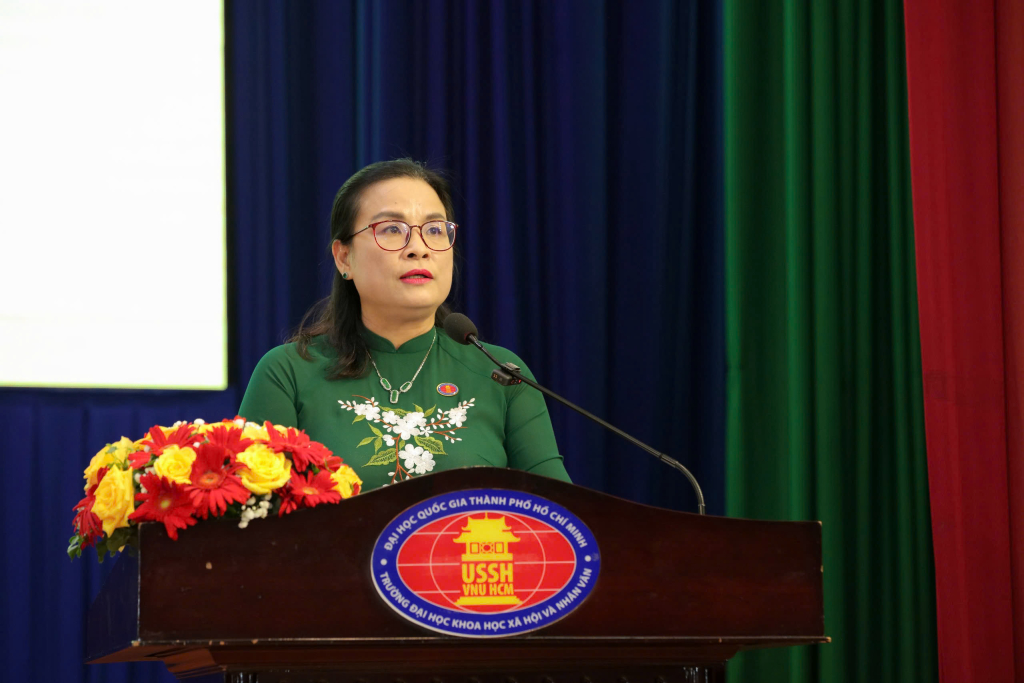 Professor Ngo Thi Phuong Lan affirmed that 50 years of unification is not just a milestone in time, but a long journey of innovation, integration and development - Photo: Ly Nguyen
Professor Ngo Thi Phuong Lan affirmed that 50 years of unification is not just a milestone in time, but a long journey of innovation, integration and development - Photo: Ly Nguyen
On behalf of the University of Social Sciences and Humanities, VNU, Prof. Dr. Hoang Anh Tuan, Principal of the school, shared that the two Humanities Schools, although located in the North and South, share the same spirit and mission - to be the ones to preserve, develop and spread Vietnamese humanistic values. If history has connected the two regions of the country with the victory on April 30, 1975 - the country is united, then today, education and knowledge will continue to be a solid bridge, bringing the nation into a new era - with humanities, with science and with national unity.
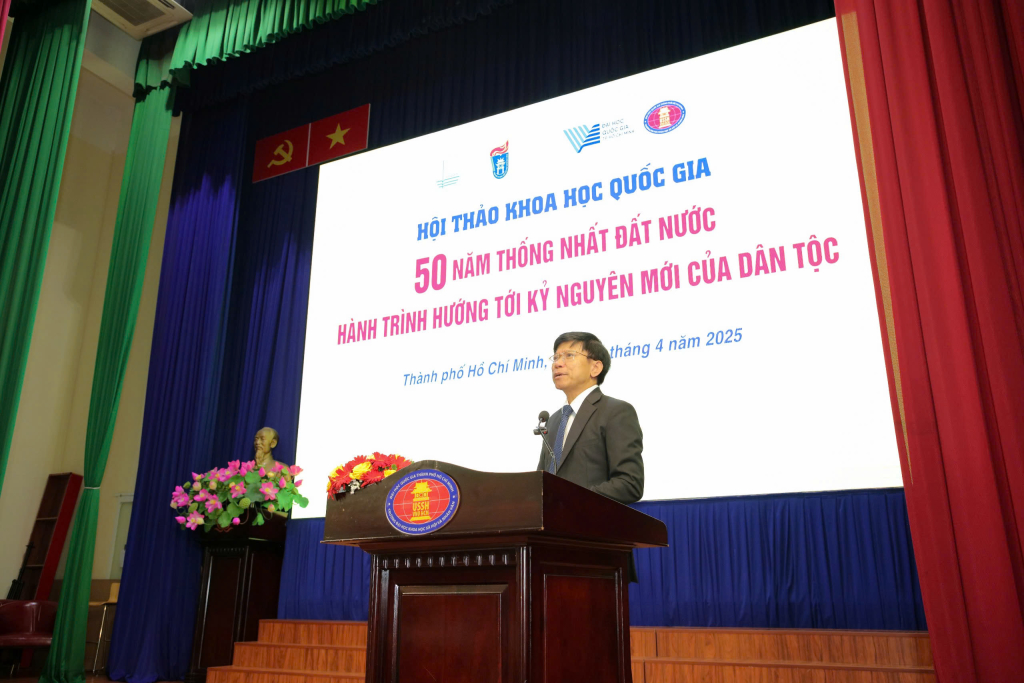
Prof. Dr. Hoang Anh Tuan speaks at the Conference - Photo: Ly Nguyen
Victory on April 30, 1975 from an academic perspective: From historical value to national development aspirations
At the conference, many in-depth papers were presented, providing multi-dimensional perspectives on the historical value of the reunification day, the national development process over the past half century, and at the same time proposing strategic orientations and solutions to help Vietnam firmly step forward in the journey of creating a new era. In the paper "The Great Victory of Spring 1975: The Power of the Will for Independence, Unification and the Aspiration for Peace and Prosperity of the Vietnamese People", Prof. Dr. Nguyen Van Khanh, Former Rector of the University of Social Sciences and Humanities, VNU, explained that the power of the 1975 victory lay not only in military superiority, but more deeply, in the power of the aspiration for peace, the will for independence and great national unity.
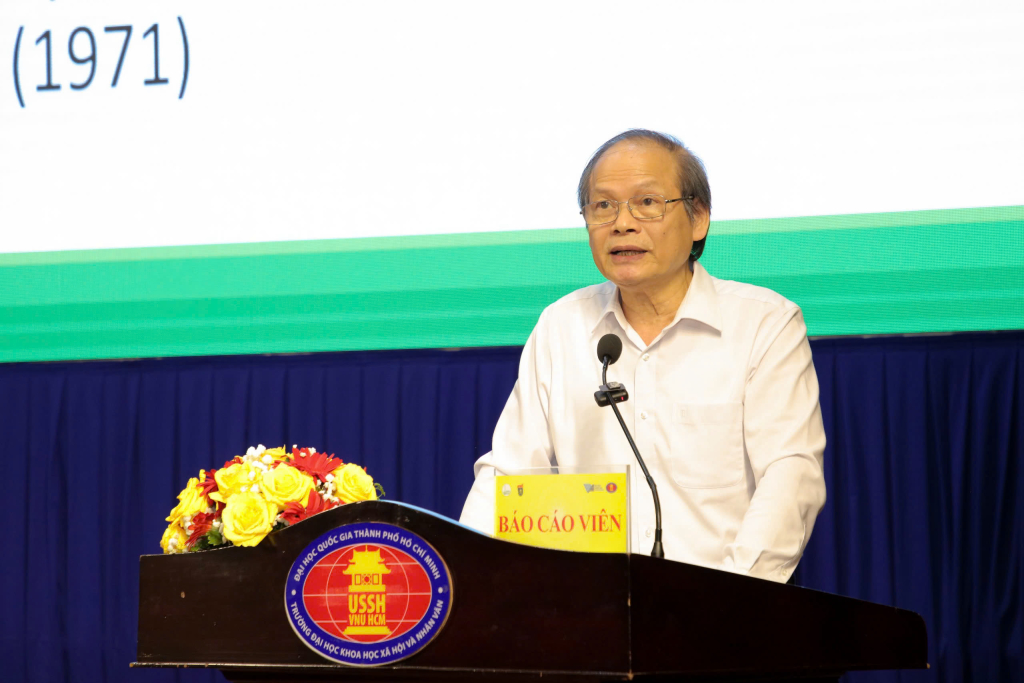
Prof. Dr. Nguyen Van Khanh (VNU-USSH) presented the paper "Unified Vietnam: An approach from historical and cultural factors" - Photo: Ly Nguyen
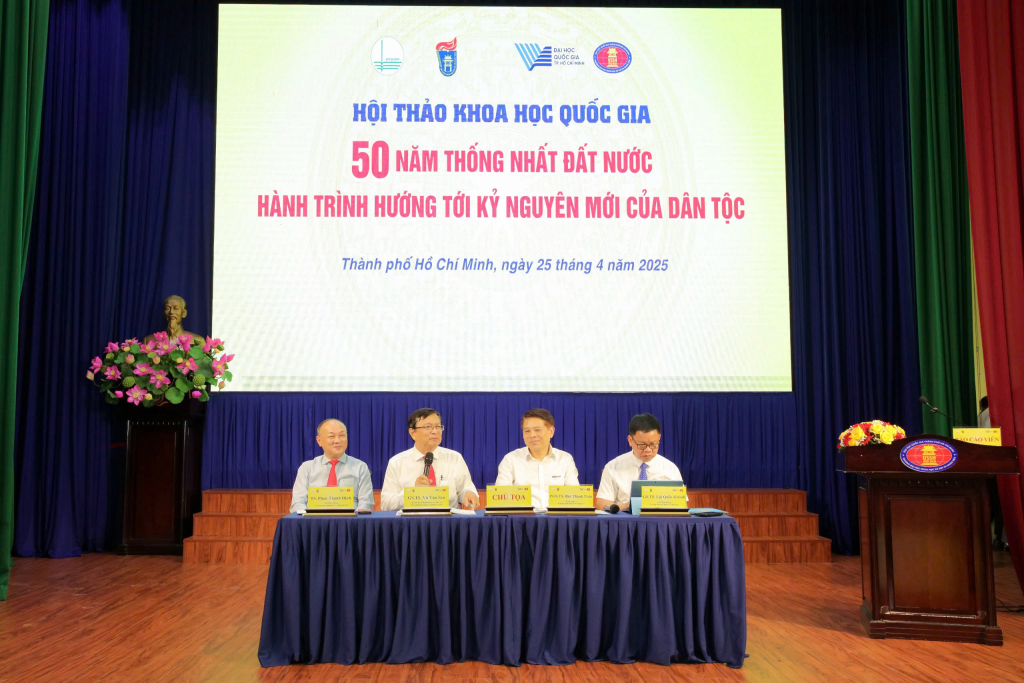
The Presidium chaired the reporting session at the Workshop - Photo: Ly Nguyen
From a cultural and historical perspective, Prof. Dr. Nguyen Van Kim, Vice Chairman of the National Cultural Heritage Council, continued to expand the depth of approach when analyzing the country's unification from a historical and cultural perspective through the discussion "Vietnam's unification: An approach from historical and cultural factors". He believes that the success of April 30 is the inevitable result of the process of integrating national cultural values through many generations, where Vietnamese identity is nurtured and spread despite historical divisions.
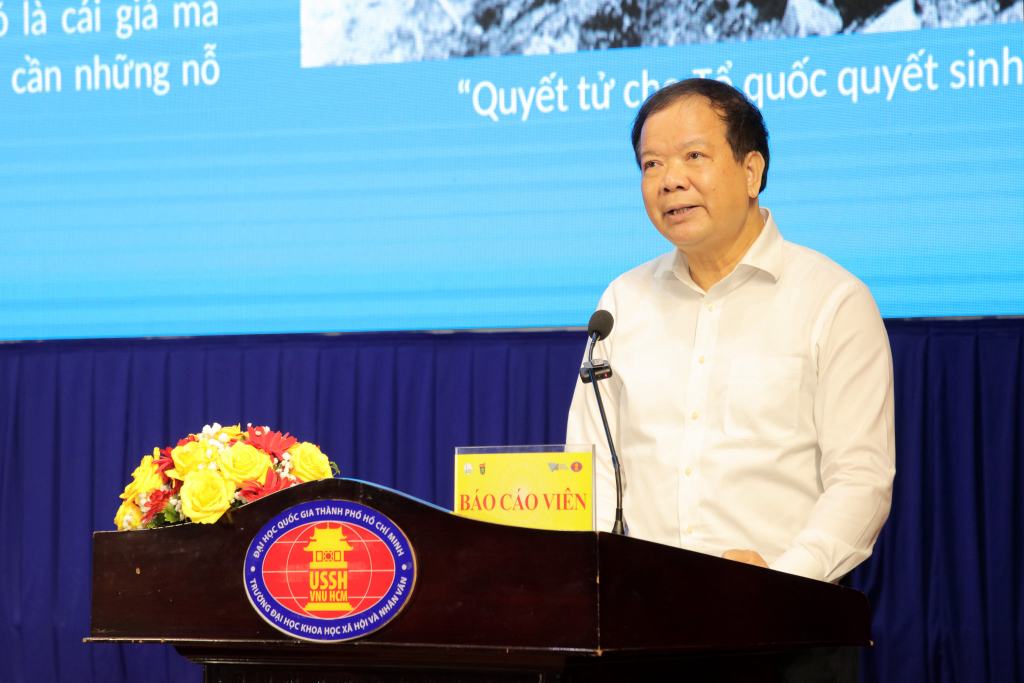
Professor Nguyen Van Kim continues to expand the depth of his approach when analyzing national unification from a historical and cultural perspective - Photo: Ly Nguyen
In the speech “The power of “One day equals 20 years” in Spring 1975 - From the perspective of military, politics and foreign affairs”, Dr. Le Huu Phuoc, former Vice Rector of the University of Social Sciences and Humanities, VNU-HCM, pointed out that the victory on April 30 was a strategic turning point that helped Vietnam reposition its position in the international arena. According to him, this victory not only ended the war and unified the country, but also affirmed the mettle of an independent nation in the context of global polarization. Since the day of reunification, Vietnam has gradually broken the siege and embargo, expanded diplomatic relations and international integration, demonstrating the importance of flexible foreign policy thinking, based on the foundation of peace, cooperation and self-reliance - values that continue to play a key role in the current context of globalization.
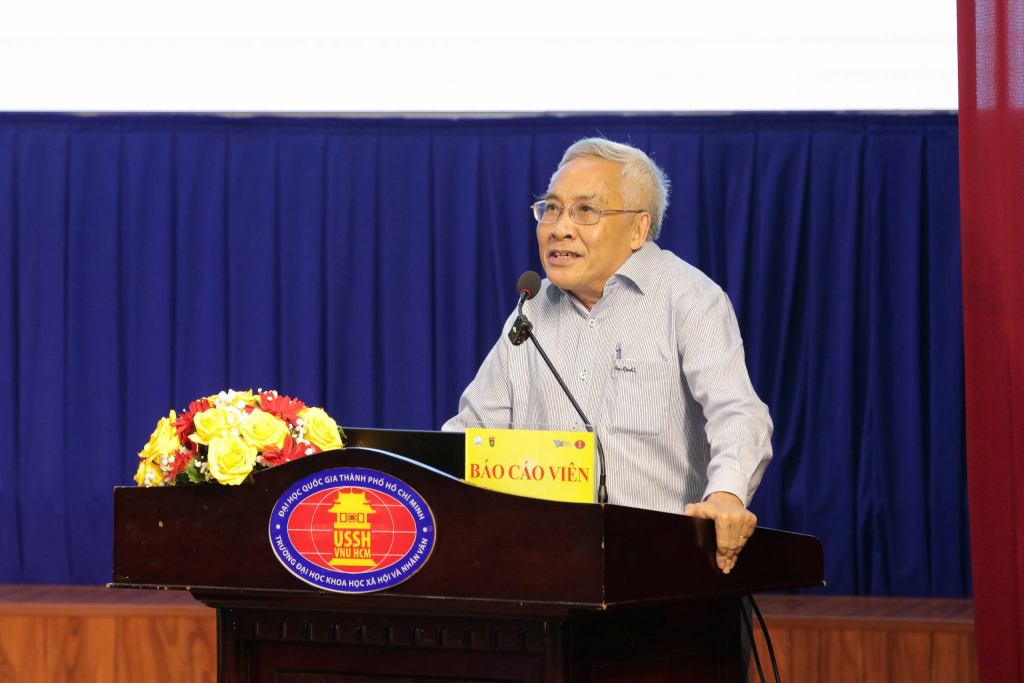
Dr. Le Huu Phuoc, former Vice Rector of the University of Social Sciences and Humanities, VNU-HCM, pointed out that the victory on April 30 was a strategic turning point that helped Vietnam reposition its position in the international arena - Photo: Ly Nguyen
In addition, the Workshop also heard analysis from Major General, Associate Professor, Dr. Vu Quang Dao, Former Director of the Vietnam Military History Institute, on the ingenious military strategy of the Vietnamese people in the great victory of Spring 1975, showing the smooth combination of political mettle, strategic thinking and military art; Associate Professor, Dr. Pham Van Linh, Vice Chairman of the Central Theoretical Council, with a profound theoretical and policy speech "50 years of national unification (1975-2025), moving towards Socialism: Some theoretical and practical issues in Vietnam", pointed out the development stages of Vietnam after unification, the bright spots as well as the challenges of the socialist-oriented development model in the context of globalization and digital transformation.
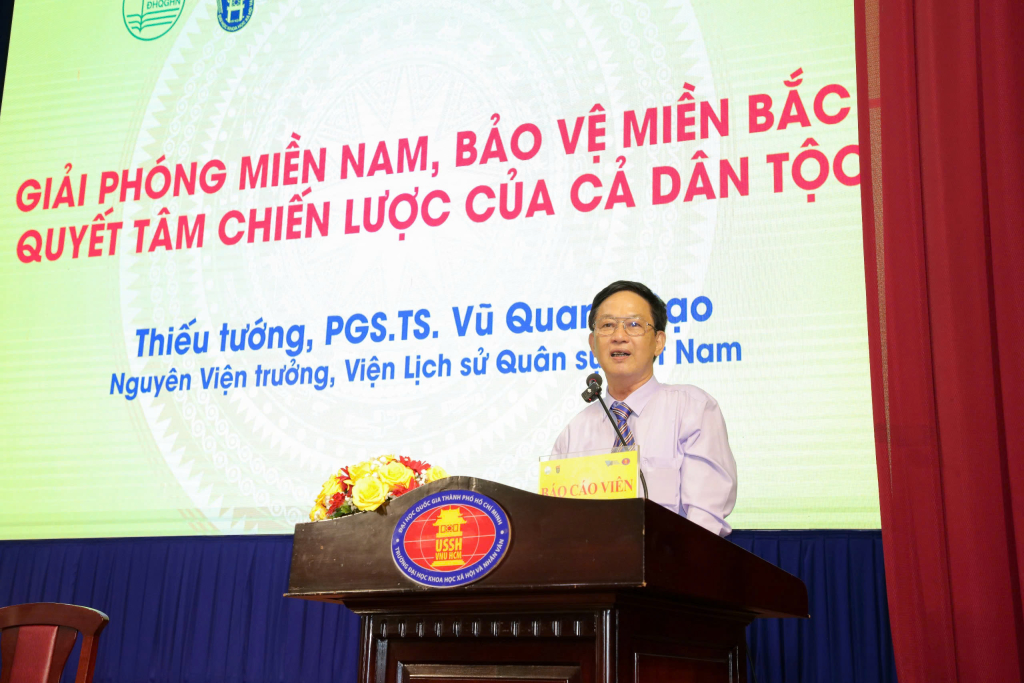
Major General, Associate Professor, Dr. Vu Quang Dao, Former Director of the Vietnam Military History Institute, presented the paper "Liberating the South, protecting the North - Strategic determination of the whole nation" - Photo: Ly Nguyen
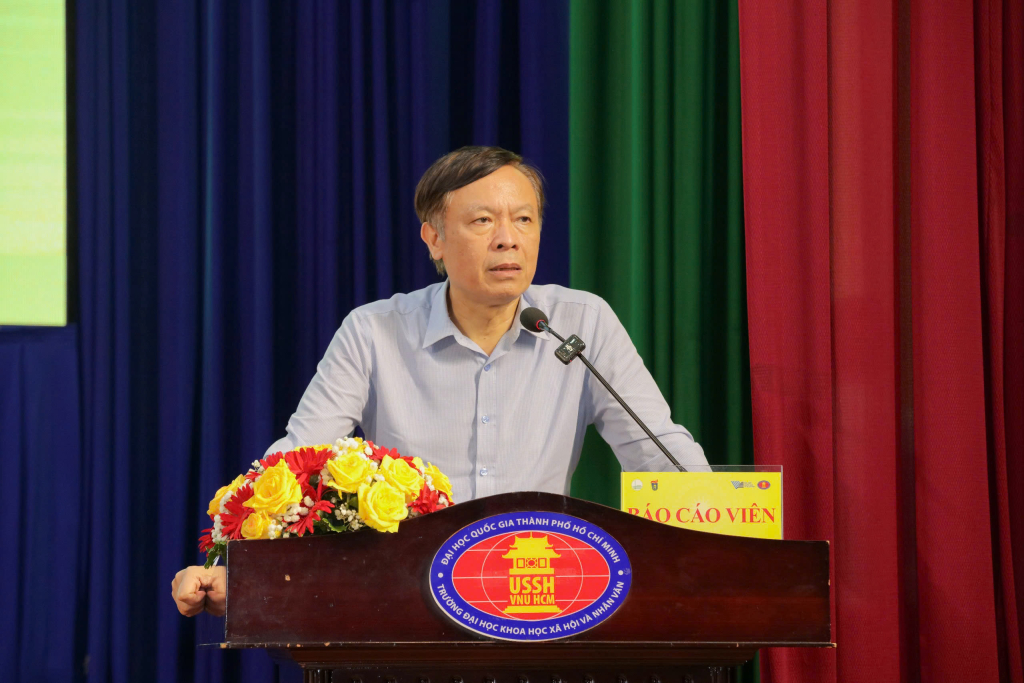
Associate Professor, Dr. Pham Van Linh, Vice Chairman of the Central Theoretical Council, presented the paper "50 years of national unification (1975-2025), moving towards Socialism: Some theoretical and practical issues in Vietnam" - Photo: Ly Nguyen
After the presentation, the discussion session took place enthusiastically with the participation of researchers, leading experts, lecturers and students. The opinions exchanged focused on clarifying issues of current and strategic significance such as: how to promote the value of national harmony in the context of an increasingly competitive and polarized world; the urgent need to innovate the country's development thinking in the period of deep integration and digital transformation; the essential role of social sciences and humanities in creating a spiritual foundation, identity and adaptability for global citizens. The exchanges at the forum not only reflected a multi-dimensional, interdisciplinary approach and linked to national development practices, but also spread the sense of responsibility, aspiration to contribute and critical thinking of the young generation - the subjects who will continue the journey of building and affirming the country's position in the new era.
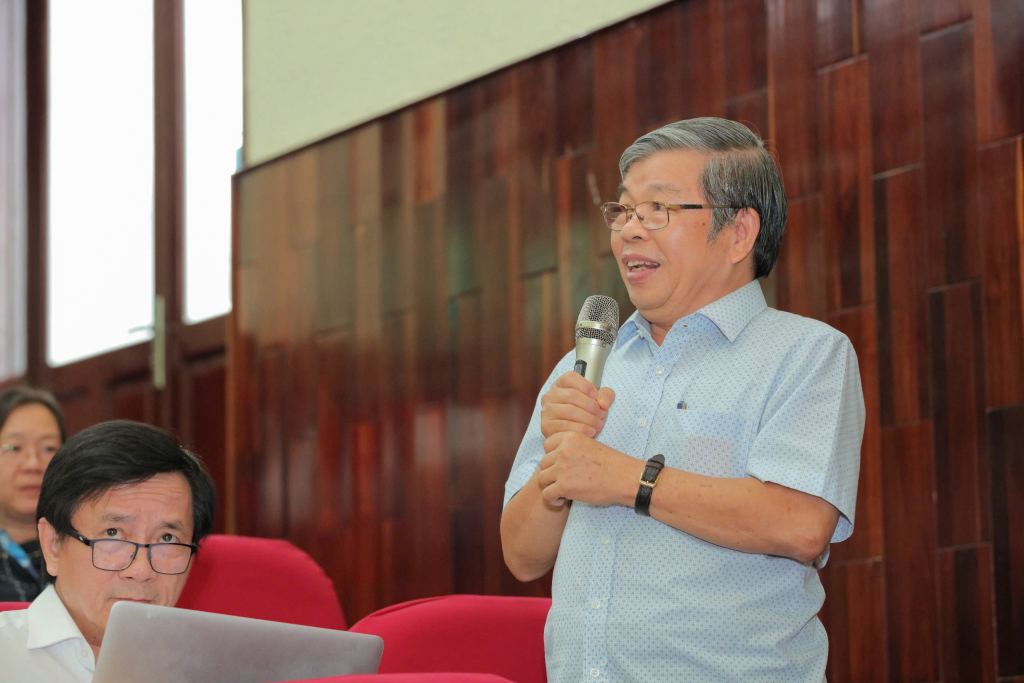
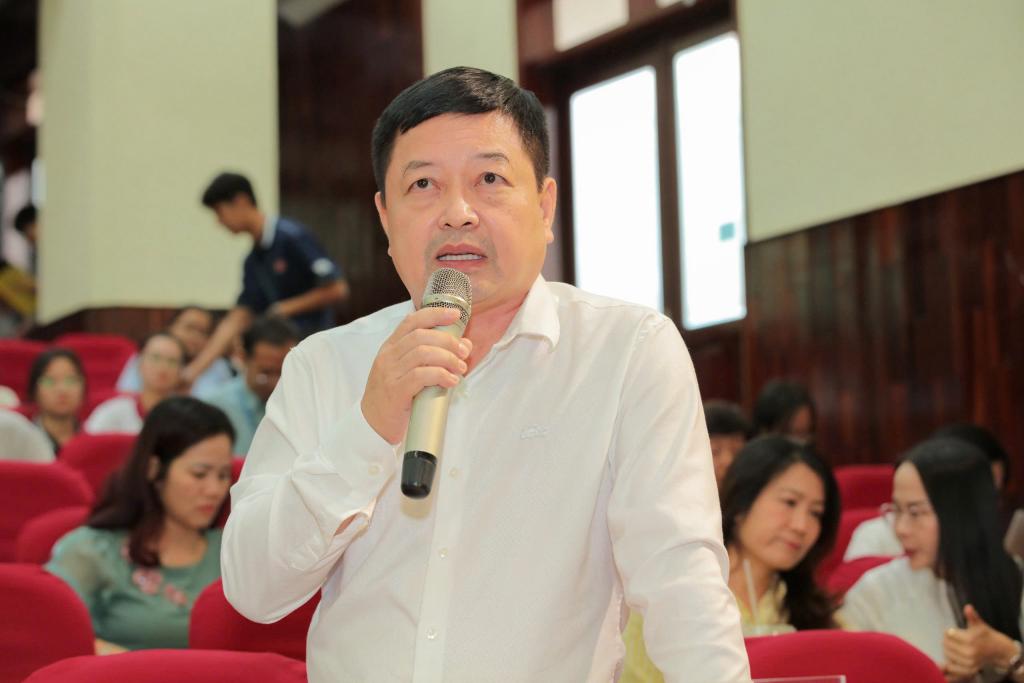
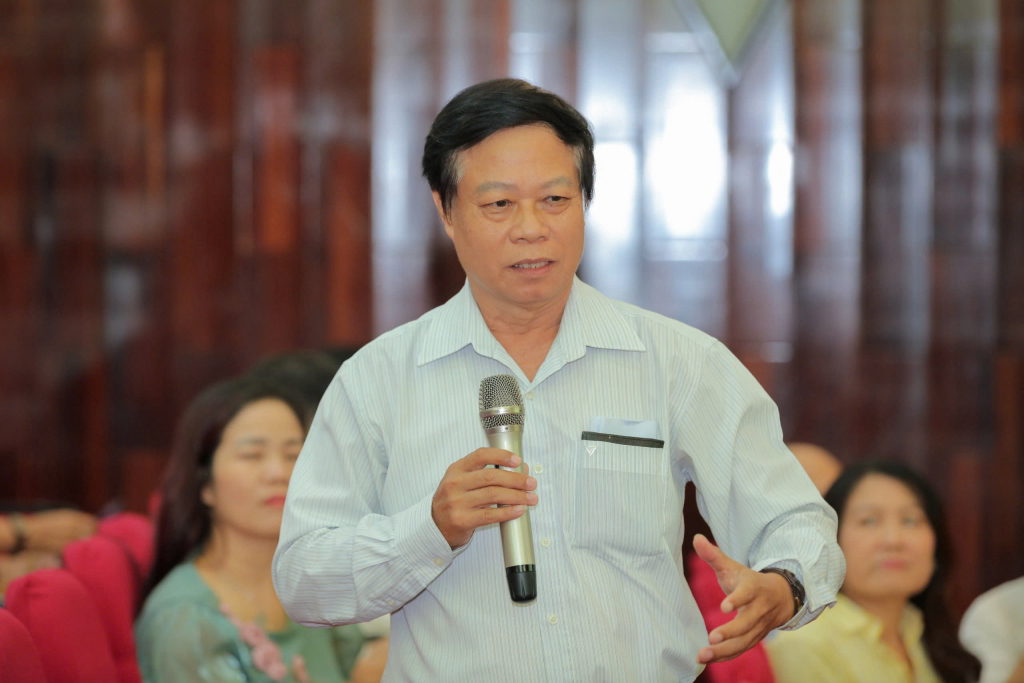
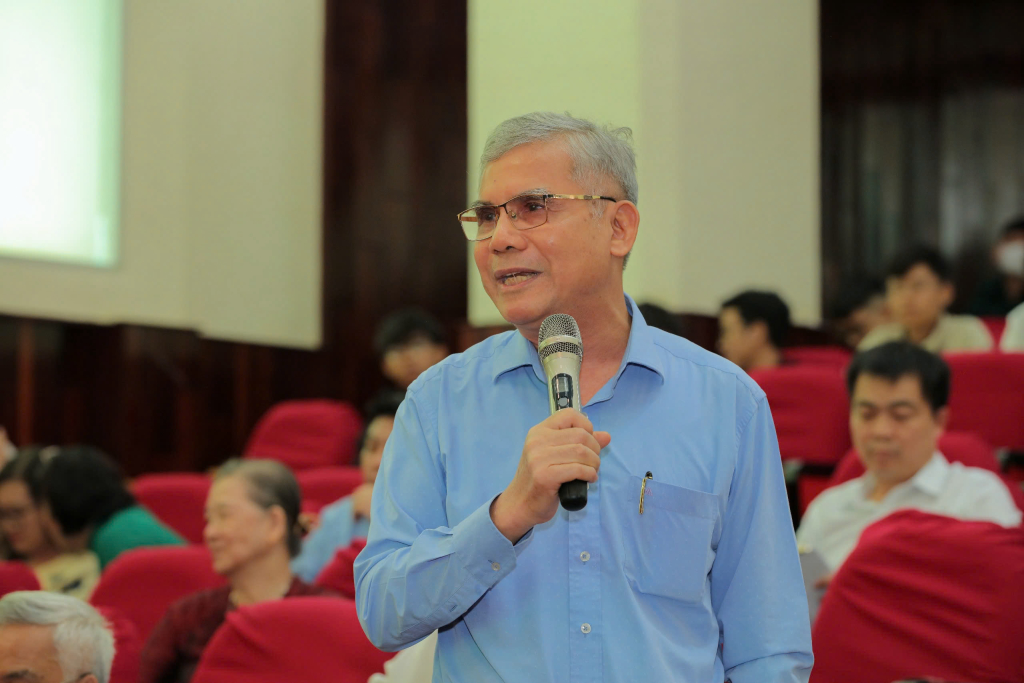
Delegates participating in the discussion at the Workshop - Photo: Ly Nguyen
North-South Knowledge Bridge, the Foundation for a New Era
In his closing remarks at the conference, Prof. Dr. Lai Quoc Khanh, University of Social Sciences and Humanities, VNU, summarized the core meanings throughout the program. First of all, he emphasized that the victory of April 30, 1975 was a historical milestone of profound epochal significance, not only opening an era of peace and unity, but also laying a solid foundation for the cause of national construction and development over the past 50 years. Next, Prof. Dr. Lai Quoc Khanh affirmed that the half-century after reunification is a process of accumulating great achievements and valuable lessons in economic development, social stability, international integration and enhancing the country's position in the world arena. In particular, Prof. Dr. Lai Quoc Khanh pointed out that, in the context of the country's strong transformation, strategic planning, effective policy issuance and proper and sufficient mobilization of development resources will be prerequisites for Vietnam to enter a new era - an era of comprehensive, sustainable development imbued with humanistic spirit.
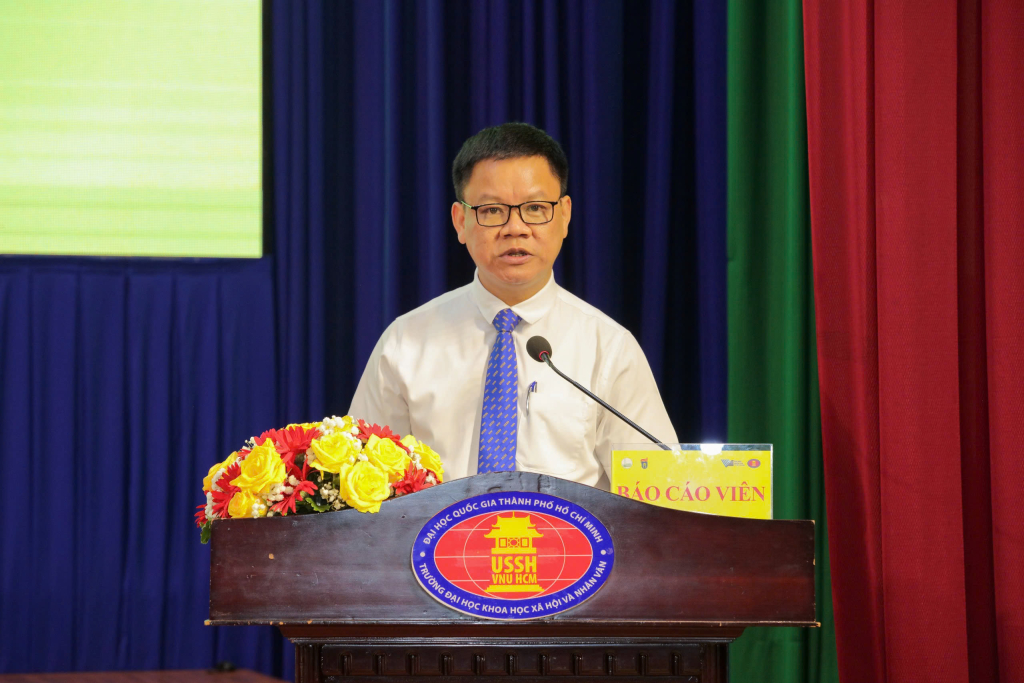
Prof. Dr. Lai Quoc Khanh - Vice Rector of the University of Social Sciences and Humanities, VNU delivered a closing speech at the Conference - Photo: Ly Nguyen
The national scientific conference “50 years of national reunification – Journey towards a new era of the nation” is not only an in-depth academic forum, but also a symbol of the companionship and intellectual connection between the two leading training institutions in social sciences and humanities of the country – University of Social Sciences and Humanities, VNU-HCM and University of Social Sciences and Humanities, VNU-Hanoi. In the context of the country facing new development opportunities, co-organizing a national forum like this conference shows the strong commitment of the two Universities in linking research – training – serving society, while affirming the pioneering role of humanities in national strategic thinking. From the glorious past to the changing present and the shaping future, the workshop contributed to deepening awareness of the journey of national unification, spreading the aspiration for sustainable development, and igniting the spirit of civic responsibility in each generation - so that knowledge is not only a heritage, but an action to create the future.
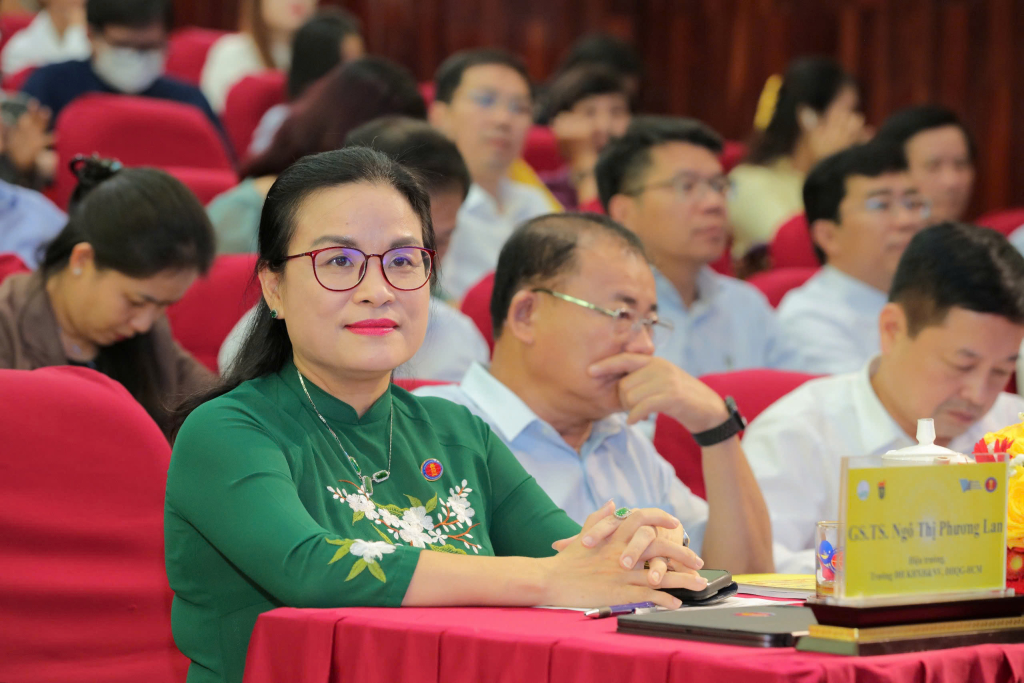
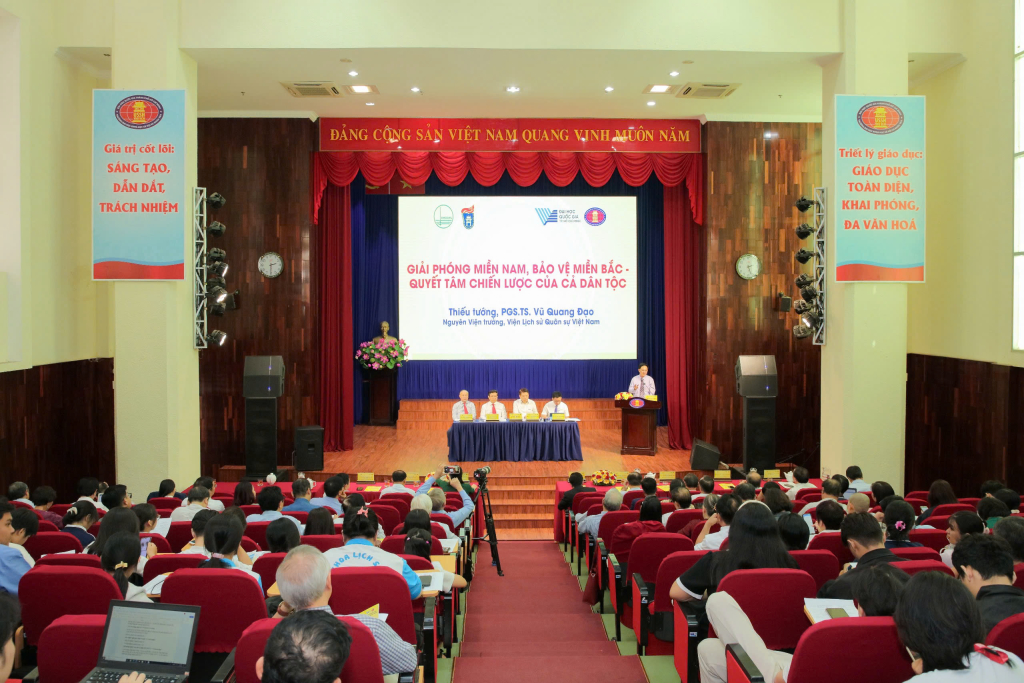
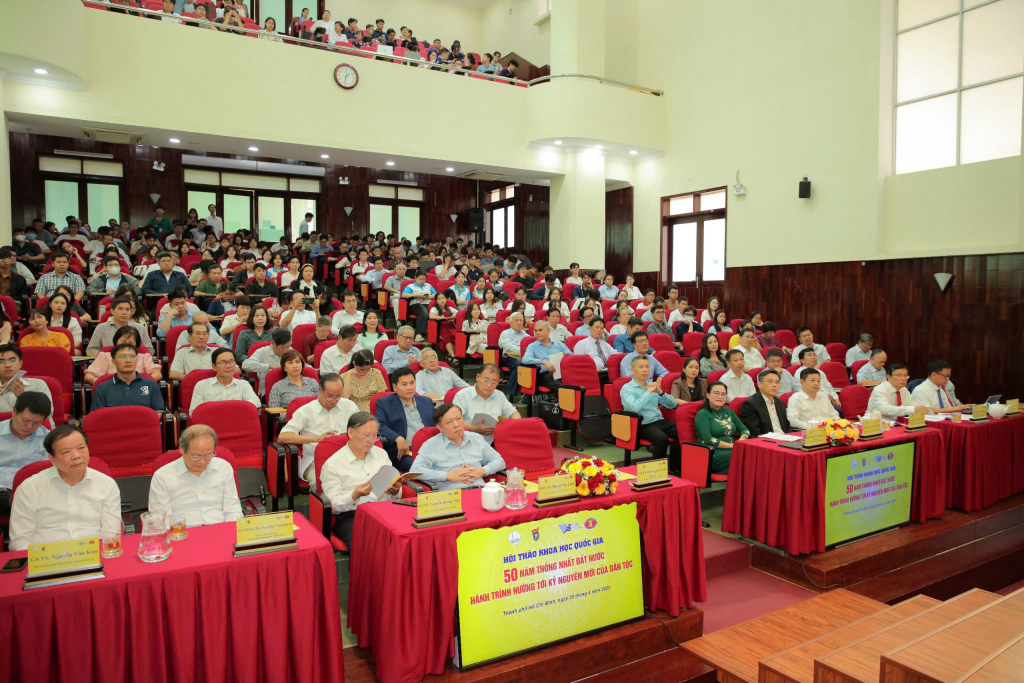
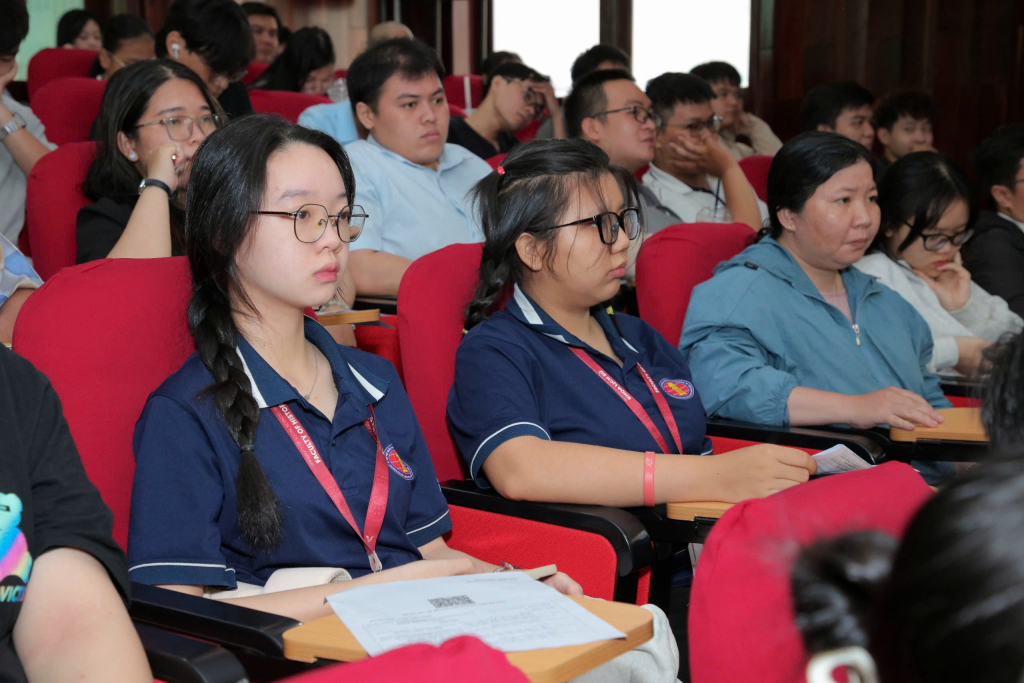
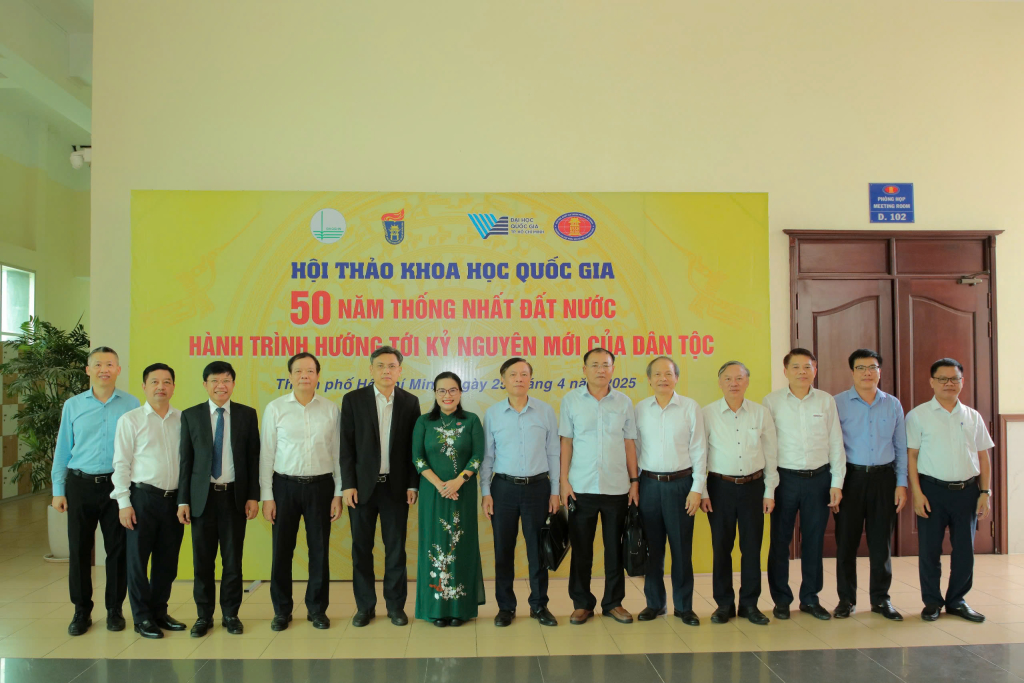
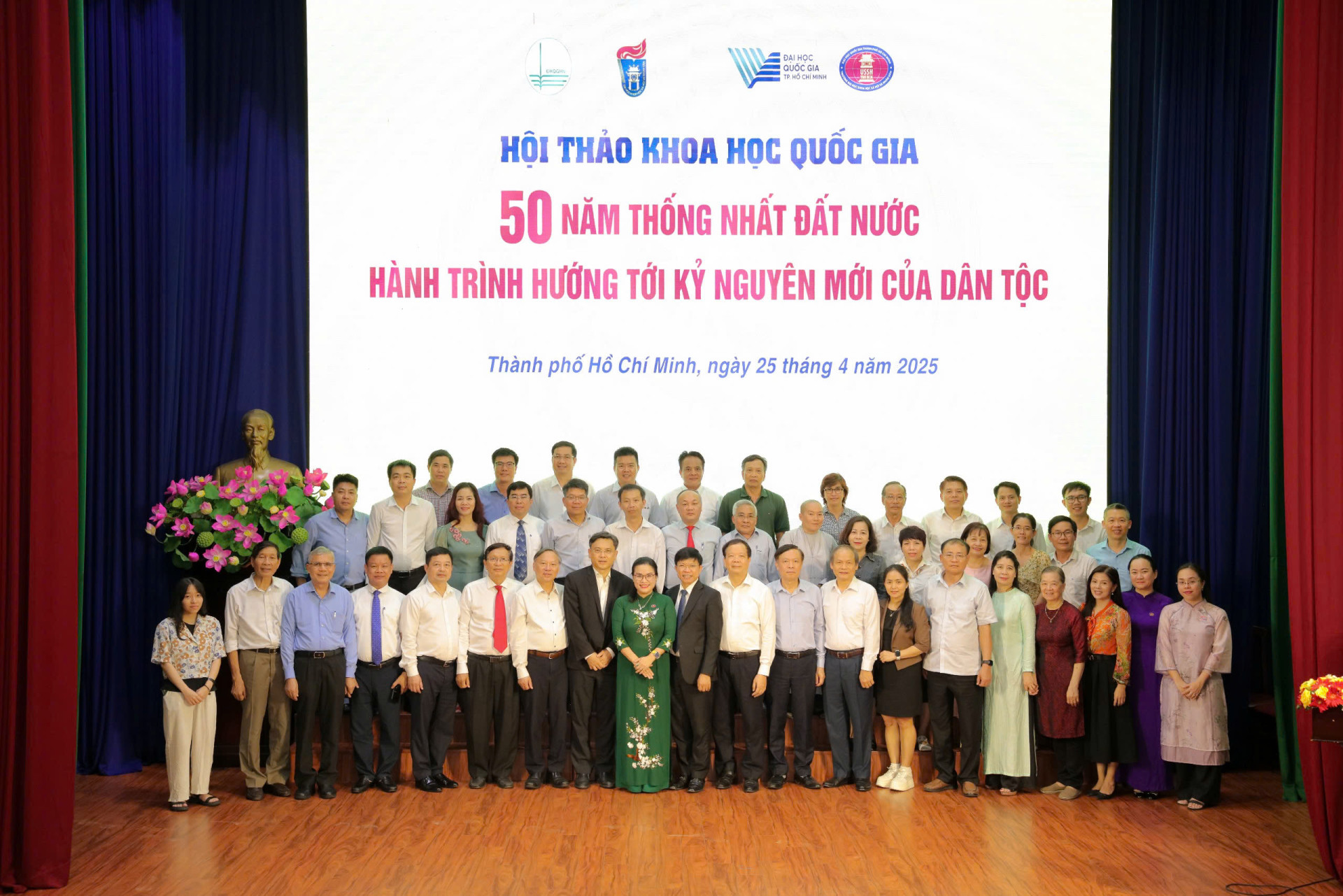
Newer news
Older news